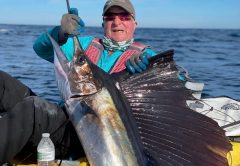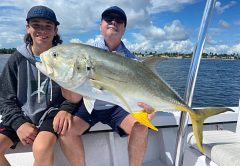While much of the nation experiences four seasons through-out the year, here in Florida we have just two, Hurricane Season and Fire Season. Hurricane Season runs from June 1st through November 30th, the rest of the year is Fire Season. The peak of fire season are the months of January, February, and March.
Florida is blessed with a diverse ecosystem. Located in a subtropical climate, Florida has vast areas of grass prairie, scrub lands, hammocks and forests. All of which are capable of producing wildfires. As a result, Florida ranks number two in the nation in the total number of annual wildfires. In south central Florida, much of our population lives in a farm, ranch, or rural setting and these areas are especially prone to wildfires. With a fire’s Ember Zone extending out to one- mile from the core of a fire, even residents in our towns and cities are susceptible to the damaging impact of a major wildfire. Therefore we all must educate and prepare ourselves and our homes to withstand the impact of a wildfire. It’s not a question of if a fire will occur, but a matter of when the next major wildfire will occur.
The main causes of wildfires in the State of Florida are: escaped debris from open fires; overheating and sparks emitted from equipment such as trains, trucks, automobiles, and farm equipment; unattended or uncontrolled campfires; children playing with matches, lighters, cigarettes, or fireworks; break-outs from controlled burns; structure fires spreading to nearby vegetation; and lightning.
To protect ourselves, our families, and our property from wildfires requires a Wildfire Action Plan. This Plan should include: building a defensible space around our homes; hardening our homes against fire; choosing proper materials when building structures on our property; a plan of action for you and your family to take when a fire does approach; an emergency survival plan for when you need to evacuate; and finally a recovery plan for after the fire passes. This sounds like a lot and it is, but the cost of not preparing yourself will be much greater if you don’t prepare yourself. For unlike hurricanes where there is plenty of warning and time to prepare, wildfires erupt quickly and even the smallest of grass fires can spread to your home and destroy it.
The first step in protecting your home from wildfires is to educate yourself. There are plenty of resources on the internet that will help you identify key components of your Wildfire Action Plan. The Florida Forest Service at FreshFromFlorida.com, the National Fire Protection Association’s FireWise Program at WildlandFireRSG.org, and Florida Disaster. org at FloridaDisaster.org are three good sites to start with.
Once you’ve become informed you should begin building a ‘defensible space’ around your home to create a buffer between you and an approaching fire. A defensible space is the area from 0 to 30- ft away from your home. In this zone nothing flammable should be planted or placed against your home or other structures. The less fuel available for the fire in this area, the greater the protection becomes for your home. Be sure to keep grasses and fields mowed, trees trimmed, and store flammables as far away from your home as possible. If your property extends beyond this defensible space, then continue to reduce the potential fire fuels and extend the protection parameter as far out as possible.
Once you completed your defensible space then it will be time to harden you home. Under this phase you’ll be ensuring your roof, eaves, vents, walls, balconies, and decks are protected against the flying embers of an approaching fire. Rapidly moving fires create intense winds which will carry embers a great distance from the fire. These wind whipped embers will probe every weak link in your home, so the object is to eliminate all potential avenues for a hot ember to enter your home. Check your roof, valleys, and gutters for dried leaves and pine needles. Ensure your eaves are sealed and vents are screened to prevent embers from entering. Balconies and decks should be clear of flammable materials and debris. The more you can prepare your home the greater your chances are in surviving a wildfire.
The final part of a Wildlife Action Plan is to prepare yourself and your family if and when it becomes time to evacuate your home. If you already have a plan for Florida’s hurricane season then much of the work is already done for the basics are the same. If you must evacuate: have copies of important papers ready and available for the taking; have an emergency communication plan among family members so everyone knows who to contact and where to meet up if you get separated; if you take medications have them readily available; and have a plan for sheltering when the time arrives. Remember not every shelter will take pets and animals so be proactive and check ahead of time.
In the State of Florida, as a land owner, you are responsible for wildfires that occur on your property as well as controlled burns that jump confinement. If a fire gets out of control and poses a threat, the State will step-in and extinguish the fire and you could be liable for costs associated with the suppression and damage to the property of others. For all agricultural, land clearing, pile and acreage burning you must receive authorization from the Florida Forest Service. The Forest Service Field Headquarters for our region are: for Okeechobee, Highlands, and Glades counties contact the Okeechobee Forestry District at (863) 467-3221; for DeSoto and Hardee counties contact the Myakka River Forestry District at (941) 751-7627; and for Hendry county contact the Caloosahatchee Forestry Center at (239) 690-8001.
Living in Florida is a great experience and we all love our subtropical weather and great outdoors. For this we must endure periods of hurricanes and wildfires. But we’re not alone in this endeavor for we have some of the finest first responders and disaster preparation and recovery programs in the United States. However when it comes to wildfires, successfully preparing for a wildfire requires you to take personal responsibility for protecting yourself, your family and your property. So educate yourself and utilize all the government resources at your disposal and build a personal Wildfire Action Plan suitable to your needs and requirements. Wildfires may come quickly but the damage can last a lifetime.








